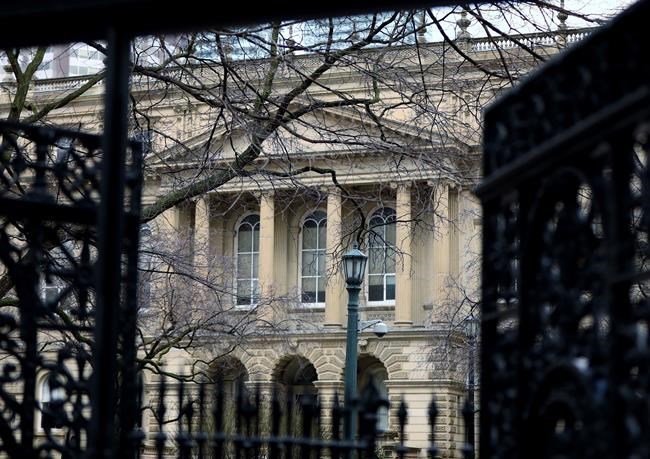TORONTO — Ontario has appealed a judge's decision to strike down as unconstitutional parts of an agriculture law that made it illegal to get a job on a farm under false pretences to expose conditions inside.
Justice Markus Koehnen struck down parts of Bill 156, the Security from Trespass and Protecting Food Safety Act, last month after advocacy group Animal Justice, along with an activist and a journalist, launched a Charter challenge in 2021.
The province says in documents filed with the Court of Appeal for Ontario that Koehnen made errors in fact and law.
Animal Justice had argued the law infringed upon its Charter right to freedom of expression, which Koehnen agreed with.
The province argues Koehnen erred by concluding the law limited Charter-protected expression by activists, journalists and whistleblowers.
Government lawyers argue that nothing in the legislation limits anyone from publishing footage obtained by way of an undercover operation.
"The Superior Court made a palpable and overriding error of fact in concluding that reducing or eliminating undercover 'exposés' was a purpose of the legislation," the province wrote in its notice of appeal filed last week.
"The finding was made in the absence of evidentiary support for such a conclusion."
The law, passed by Doug Ford's government in 2020, required consent from the owner to be on a property where animals are kept, raised or slaughtered. That consent vanished under the law if someone lied to get on the property.
The province said the point of the act was to protect farmers and their animals, strengthen biosecurity and prevent economic harm. It was responding to demands from the agricultural industry and about 120 municipal resolutions calling on the government to do more to control trespassing.
Animal Justice argued the new law infringed on their freedom of expression because they could not tell the outside world what was happening inside a farm if they gained access to the property through a false pretence.
Undercover operations at farms are about to restart, said Camille Labchuk, executive director of Animal Justice, adding the organization is ready for the province's appeal.
"Animal Justice is committed to defending this strong ruling against a government appeal," she said.
"Undercover investigations are one of the only tools we have to hold farms and slaughterhouses to account for unlawful cruelty to animals, and to bring public transparency to a troubling, secretive sector."
The law also targeted a small group of activists who protested outside slaughterhouses by giving water to pigs.
It made it illegal to interact with animals inside transport trucks, which Koehnen concluded did not violate the Charter.
Regan Russell, 65, died shortly after the bill became law in June 2020 when a truck hauling a load of live pigs ran over her while she was protesting a pig slaughterhouse in Burlington, Ont. The driver, Andrew Blake, pleaded guilty to the provincial offence of careless driving causing death. He was fined $2,000 and given 12 months of probation.
This report by The Canadian Press was first published May 10, 2024.
Liam Casey, The Canadian Press



